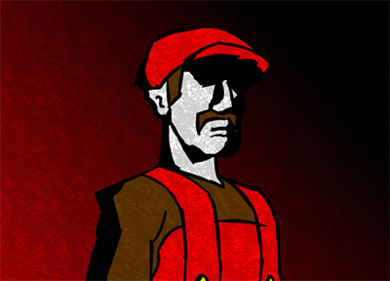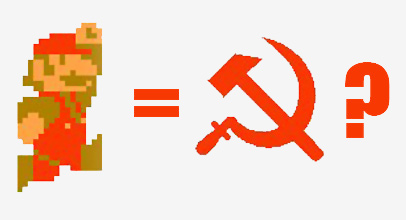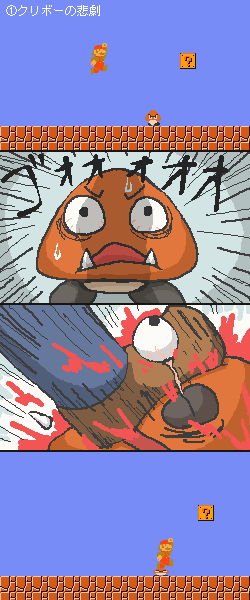On my way home from Guildwood last week I read the Globe and Mail. As GO-Trains tend to be littered with newspapers and I tend to get bored easily during the ride, reading the paper was really my only course of action. This was a few days before New Years Eve, so naturally this particular issue of the Globe was dotted with year and specials. Best of '06, Year in Review, What To Look Forward to in 07, etc. Being a game aficionado... well, I use that term because game addict makes it sound like I have a problem, even if the definition may be more accurate... anyways, being the avid gamer that I am of course I was drawn to Scott Colbourne's Year In Review of Video Games. His article summed up the best games of the year, which next-gen console was the best, what had arrived that changed the industry, and what 2007 held for gamers like myself. Standard year end stuff, but it was Mr. Colbourne's conclusion that got me thinking.
As for what failed to arrive, the video-game world did not welcome its Citizen Kane or even Birth of a Nation, a work of art that could establish the medium as a meaningful delivery system for ideas. There were fun games and there were beautiful games, but fantasy and escapism still dominated. Perhaps such sound and fury are all gamers can ever expect, and there is something to be said for the lasting appeal of pure play. But there is a growing feeling, and not just among game reviewers attempting to justify their existence, that the activity has to add up to something more than profits and fleeting tugs at the baser emotions.
With capable machines and word spreading to a broader audience, at least that breakthrough seems closer now than it did 365 days ago.
Colbourne is arguing that gaming is still a medium in its infancy. To use a film analogy, the games we're playing now are silent movies, the Citizen Kane of the medium is going to have to be a talkie. It may not be fair to compare video games and film, but comparisons have always been drawn. Games with too many cinematic cut scenes and drawn out dialogue are often criticized for being too filmic, conversely movies with big budget computer effects and mindless action are maligned as being too video-gamic...
2.containing characteristics resembling those of video games.
Yes, I just made that word up. I believe it is unfair to the video game medium to be used as a point of criticism against film makers. Game designers more often than not derive a great deal of influence from films. Games and movies are both visual mediums, and what works for one will most likely work for the other. However, the medium of film is so established that it's almost akin to comparing Shakespeare to caveman wall drawings. Maybe I am giving the medium of film too much credit, but for now it remains the more successful medium. However, I do believe that ultimately video games will eventually have more to offer participants artistically, emotionally and even physically than film will ever be able to deliver as a medium.
Orson Welles film Citizen Kane is significant to the medium of film in that it was one of the first movies to combine many different styles of film making, new and old artistic techniques and combine them to create something new. The greatness lay not in the originality of film making technique, but in the combination of tried and true techniques to create something original. So what would make the Citizen Kane of video games? Does combining tried and true game design techniques in a different and new ways make it happen? One thing Citizen Kane had going for it was the vision of the individual behind it, Orson Welles was a true film auteur. There are game designer auteurs, Will Wright, Shigeru Miyamoto and Hideo Kojima to name a few jump to mind. Gaming's Citizen Kane will only get made if a personality like Welles; with a mastery of many different styles of game design and the knowledge and drive to combine them effectively, exists in the game industry. Maybe the Welles of the game industry does exist, if they do then we're on the right track.
As for the Citizen Kane of games, have we already seen it? There are of course iconic games and game characters that most people are familiar with. Mario, Pac-Man, Pong, Tetris, Donkey Kong, etc. are all easily recognizable to even the most anti-video game person. It should be noted that all of these game franchises and characters are from what we would call the early days of the game medium. Games like Super Mario and Donkey Kong epitomize the pure play element of video games that so many people know and love. Simple, Straight Forward and Accessible. These are the elements that have garnered franchises like Super Mario the lasting appeal and recognition they rightly deserve. As game-play mechanics became more complex however, public awareness of video game franchises and characters dropped off. You would be hard pressed to find a video game franchise or character that was released in the past decade with the same brand recognition as a classic game like Super Mario. My Grandmother could tell you who Super Mario is, but I think she would have a bit of difficulty telling you the life story of Solid Snake. Admittedly, brand recognition amongst average people does not mean that a game is artistically significant in the way something like Citizen Kane was to the medium of film, but awareness certainly does not hurt.
The video game medium now has the ability to present compelling story lines and ever improving game mechanics, and at the same time reach an ever broader audience thanks to new technological capabilities. New capabilities like WiFi gaming with Nintendo's DS and Sony's PSP and internet gaming thanks to XBox Live and the ever present PC gaming. As well new intuitive control systems like Nintendo's WiiMote and Sony's PS3 Sixaxis controller to a lesser degree are opening up video games to people who would have never previously picked up a controller. So in theory the potential exists, the big one lauded by Colbourne could be on the horizon.
The broader artistic expectations of cultural critics may need to be shifted for the medium of games. Amer Ajami is a producer at Electronic Arts and a former editor at Gamespot.com, I spoke to him recently about where he thought the medium was headed. "At what point do games stop becoming games and start becoming glorified, pseudo-interactive movies strung together by half-baked game-play?", Amer asked me at the start of our conversation. In recent years games have aimed high when it comes to visual presentation and storytelling. Many games have incredibly complex and compelling stories that enthral the viewer, but fall flat when it comes to the actual game-play elements. The intended player is relegated to a passive viewing role. When I asked Amer how he thought this problem could be solved he responded that "It is incredibly difficult to tell a linear and compelling story in an interactive and open-ended medium.". A few games in recent years have come close to bridging the gap between solid storytelling and excellent game-play. The Final Fantasy, Metal Gear Solid and Max Payne series have arguably succeeded to a certain degree. However, with all these games the player will always finds themselves watching a cut-scene instead of playing the actual game, sometimes for nearly fifteen minutes at a time. The open-ended, role-playing nature of most video games clearly make it more difficult for meaningful storytelling to take place, but the aforementioned games have proved that it is at least within the realm of possibility.
We have not yet seen the Citizen Kane of video games, but I believe that when it arrives it will be the game that successfully bridges the gap between what Ajami calls "pseudo-interactive movies" and the pure unadulterated play of an older game like Super Mario. Some games have come close, some games of have tried hard and completely failed to achieve anything meaningful. Others have consciously relegated themselves to the domain of pure play. Little or no story, basic game mechanics that work may have lasting appeal... But video games have the potential to be so much more than that. The "If it ain't broke don't fix it" model has been the standard practise in the video games industry for too long. Playing it safe and sticking to what worked in the past is no excuse for games to stagnate as a medium. Progress is on the way, the trail has been blazed, the potential is there; Now the video game industry just needs its Orson Welles.
Big thanks to Amer Ajami for his insight on the subject.






 Red Alert Tycoon.
Red Alert Tycoon.
Log in to comment